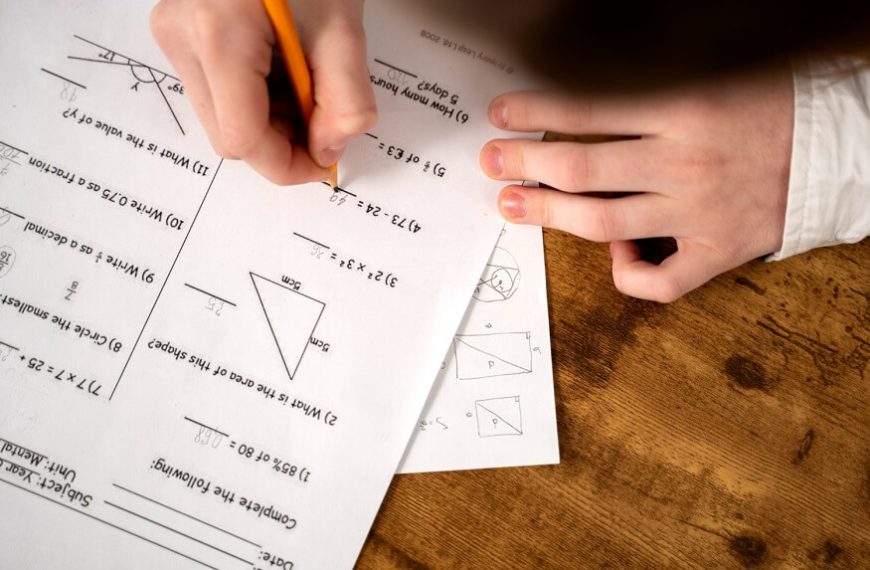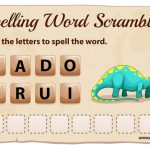Preschool is a remarkable phase in a child’s journey of exploration and discovery. During these formative years, our little ones build the foundation for future academic pursuits, and math plays a vital role in shaping their cognitive development. IBut how can we best contribute to their developmental journey? Let’s delve into the world of preschool math assessments, understanding your child’s progress, and explore how early math education can be a joyful experience. Regardless of where your child is learning, these insights and strategies apply universally, offering valuable guidance for parents navigating the exciting realm of early childhood mathematics.
Mathematics and Preschool
In preschool, mathematics learning is a dynamic and multifaceted experience that extends far beyond traditional notions of numbers and equations. It includes a broad spectrum of foundation skills that contribute to a child’s overall cognitive development. At this stage, mathematics learning involves exploring fundamental concepts such as counting, sorting and recognizing shapes. It extends into everyday activities, transforming routine tasks into opportunities for mathematical discovery. Through engaging games, interactive stories and hands-on activities, preschoolers begin to grasp basic mathematical principles, laying the groundwork for more complex concepts in the future. The emphasis is not solely on rote memorization but on fostering a genuine understanding of mathematical ideas through play, exploration and the integration of preschool math concepts into their daily lives. This approach ensures that preschool math becomes an intrinsic and enjoyable part of their early learning journey.
Why is it Important to Start Early?
While mathematics at an early age seems logical enough, let’s explore why charting math progress and preschool math assessment at an early childhood development stage are crucial.
- Early Intervention:
- Individualized Learning:
- Building a Strong Foundation:
Identifying any potential math challenges early on allows for timely intervention. Regularity of a preschool math assessment helps educators address specific areas where a child may need extra support, ensuring they are well-prepared for future math learning.
Each child is unique, and learning styles vary. Assessments enable teachers to tailor their approach, focusing on the individual needs of each child. This personalized learning experience contributes to a positive and effective educational journey, where the math progress is inspired..
Preschool math assessments are not just about evaluating current skills; they play a crucial role in building a strong foundation for future mathematical concepts. A solid understanding of basic math principles sets the stage for math progress, thereby ensuring success in more advanced math skills.
Types of Preschool Math Progress Assessments:
There are various ways to chart math progress and the following math progress assessment methods are most effective in a preschool setting.
- Informal Observations:
- One-on-One Assessments:
- Performance-Based Tasks:
Informal observations involve teachers watching and documenting a child’s interactions with math concepts during everyday activities. This may include how they sort toys, count objects or recognize shapes during playtime. These assessments provide valuable insights into a child’s natural inclinations and understanding of math.
These math progress assessments involve direct interaction between the teacher and the child. Teachers may use age-appropriate tools and activities to assess a child’s understanding of numbers, basic shapes and counting. One-on-one assessments allow for personalized attention and a deeper understanding of each child’s progress.
Performance-based tasks include activities that require children to demonstrate their math skills actively. This could involve tasks like counting objects, recognizing patterns, or completing simple math problems. These tasks provide a hands-on approach to assessing a child’s comprehension of mathematical concepts.
The Power of Playful Learning:
Every day is an opportunity for young minds to embark on exciting math adventures. By infusing math into playtime, we transform learning into a joyful exploration. Here’s how you can make math a delightful part of your preschooler’s routine, even at home!
- Counting Quests:
- Shape Safari:
- Storytime Math:
- Math in the Kitchen:
Transform everyday activities into counting quests. Whether it’s counting toys during cleanup or counting the steps on the staircase, these simple quests make numbers tangible and part of their daily experiences. As they count, encourage them with cheers and claps, turning it into a celebration.
Turn your living room or classroom into a shape safari. Hunt for everyday objects that match specific shapes. Your preschooler will not only learn to identify shapes but also develop critical observation skills. Make it a game by using a toy binocular or a homemade safari hat.
Storytime isn’t just about words; it’s an adventure into the world of numbers. Choose books that incorporate counting, patterns and basic math concepts. Pause to ask questions like “How many apples are in the basket?” or “Can you find a circle in the picture?” This interactive approach fosters a love for learning and boosts comprehension.
Involve your little one in the kitchen for some hands-on math experiences. Whether it’s measuring ingredients, dividing snacks into equal portions or arranging fruits in patterns, the kitchen becomes a delicious math laboratory. The bonus? Tasty treats at the end of the lesson!
Benefits of Math Prep for Early Childhood Development:
Math preparation at a preschool age is not just about preparing for assessments; it’s about nurturing holistic development. Here’s why these playful math adventures are invaluable:
- Cognitive Development:
- Confidence Boost:
- Social Skills and Collaboration:
- Real-World Application:
Engaging in math activities stimulates cognitive functions, promoting problem-solving skills, logical reasoning and the ability to think critically. These foundational skills are the building blocks for future academic success.
Successfully completing math quests and games instills a sense of achievement in preschoolers. This early confidence in their mathematical abilities facilitates a positive attitude towards learning in general.
Many math activities involve interaction and collaboration, whether it’s counting together, sharing toys or working on a shape hunt as a team. These experiences contribute to the development of social skills and teamwork.
By integrating math into everyday activities, preschoolers understand that math is not confined to textbooks. They see it as a tool for understanding and interacting with the world around them, fostering a practical and intuitive understanding of mathematical concepts.
Future Professions for our Little Mathematicians
Here’s how early math progress assessments in preschool can be the springboard to diverse and fulfilling professional journeys:
- STEM Professions:
- Finance and Accounting:
- Medical and Health Sciences:
- Architecture and Design:
- Data Science and Analytics:
- Education and Research:
A solid foundation in early math lays the groundwork for success in science, technology, engineering, and mathematics (STEM) fields. Whether it’s becoming a mathematician, engineer, computer scientist or researcher, the analytical and problem-solving skills honed through early math assessments are invaluable.
Proficiency in math is a cornerstone of careers in finance and accounting. From financial analysts to accountants, individuals with a strong mathematical background are sought after for their ability to navigate complex numerical data, make informed decisions, and ensure financial accuracy.
Future doctors, nurses, and health professionals benefit greatly from early math assessments. The ability to understand and interpret numerical data is crucial in fields like medical research, pharmacology and epidemiology, where precision and analysis are paramount.
Architectural and design professions require a keen understanding of spatial relationships, proportions, and measurements—concepts that are introduced and reinforced through early math assessments. A solid mathematical foundation is key for designing structures, planning spaces and creating aesthetically pleasing environments.
In the age of big data, professionals in data science and analytics rely heavily on mathematical modeling and statistical analysis. Early exposure to math assessments nurtures the quantitative skills needed to excel in these fields, where interpreting data trends and making data-driven decisions are central.
Those who choose careers in education and research benefit from a comprehensive understanding of mathematical concepts. Whether as educators shaping young minds or researchers exploring mathematical theories, a strong foundation in early math assessments equips individuals to contribute significantly to the academic landscape.
As your child embraces the joy of counting, shapes, and patterns, they are not just preparing for assessments – they are unlocking the door to a world where every math problem is an exciting puzzle waiting to be solved. At EuroKids, our approach to teaching mathematics to preschoolers goes beyond the classroom walls. Through these fun and engaging math adventures, we aim to instill a lifelong love for learning. As parents, educators, and caregivers, let’s continue to nurture this curiosity, creating a universe where every mathematical concept is an exciting discovery and every child is empowered to embrace the wonders of learning.















